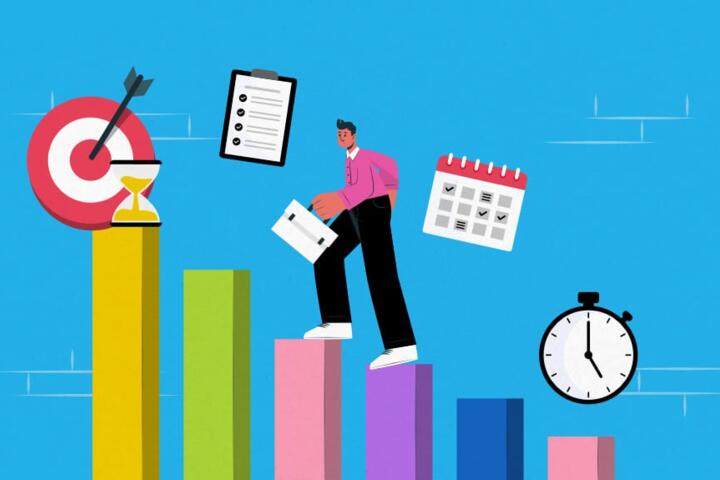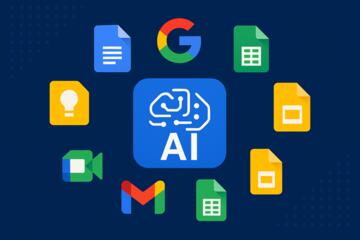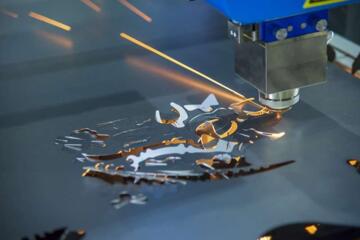Why the Right Tools Define Success
In any business or creative field, success depends not only on skills but on efficiency and productivity. The best professionals understand that using the right tools saves time, minimizes stress, and improves results.

Whether you’re a freelancer managing multiple clients, a project manager coordinating teams, or a craftsman balancing precision tasks, essential tools for every task make the difference between average and exceptional outcomes.
According to a 2024 McKinsey & Company study, professionals using digital productivity tools report a 25–30% improvement in output, with reduced administrative overhead and better collaboration.
The Foundations of Productivity
1. The Role of Tools in Efficiency
Tools are not just accessories — they’re multipliers. They automate repetitive processes, enhance accuracy, and allow you to focus on meaningful work.
A designer with an optimized workflow using Figma or Adobe Creative Cloud works faster than someone managing drafts manually. Similarly, construction teams with advanced Bosch power tools complete projects with fewer reworks and higher safety standards.
2. Digital vs. Physical Tools
Both categories are crucial:
-
Digital tools boost knowledge work — communication, planning, and analysis.
-
Physical tools empower hands-on industries — engineering, carpentry, manufacturing, and healthcare.
The goal? To align your tools with your workflow and ensure seamless integration.
Must-Have Tools for Knowledge Workers
1. Project Management Software
Organizing projects efficiently is essential for teams and individuals alike.
Top Choices:
-
Asana – Ideal for team collaboration and task timelines.
-
Trello – Great for visual thinkers who prefer Kanban boards.
-
ClickUp – Combines docs, goals, and dashboards in one place.
Pro Tip:
Choose a system that scales with your workflow. For complex organizations, Monday.com offers integrations with CRM, finance, and HR tools.
Benefits:
-
Task automation reduces manual follow-ups.
-
Visual boards track progress at a glance.
-
Improved accountability through team transparency.
2. Communication and Collaboration Tools
Efficient communication prevents errors and fosters teamwork — especially in hybrid or remote setups.
Recommended Platforms:
-
Slack: Real-time messaging and integrations with 2,000+ apps.
-
Microsoft Teams: Great for enterprises already using Microsoft 365.
-
Zoom: Reliable for video conferencing and webinars.
Example:
Hilton Hotels implemented Slack across departments and saw a 40% reduction in email dependency within six months.
Best Practice:
Set clear communication norms — for example, “urgent” tasks go in Slack threads, not emails.
3. Cloud Storage and File Management
With data at the center of modern work, secure cloud storage ensures accessibility and protection.
Best Options:
-
Google Drive: Intuitive for real-time document collaboration.
-
Dropbox Business: Strong security and version control.
-
OneDrive: Seamless integration with Windows and Office.
What to Look For:
-
End-to-end encryption
-
Multi-device sync
-
File version recovery
4. Time Tracking and Productivity Analytics
Measuring how you spend time can reveal hidden inefficiencies.
Popular Tools:
-
Toggl Track – Simple yet powerful for freelancers.
-
RescueTime – Monitors app and site usage automatically.
-
Clockify – Free time tracker with team reporting features.
Tip: Review weekly analytics to identify time drains — such as meetings that could have been emails.
Statistic:
According to Airtasker Research, professionals who use time-tracking tools report 13% higher productivity.
5. Note-Taking and Knowledge Management Tools
Knowledge retention and quick reference are key productivity pillars.
Top Platforms:
-
Notion: Combines notes, databases, and project tracking.
-
Evernote: Great for clipping and organizing research.
-
Obsidian: Ideal for deep thinkers using “second brain” methodologies.
Why It Matters:
Having a structured system for capturing ideas ensures you never lose valuable insights.
Pro Tip:
Adopt the PARA system (Projects, Areas, Resources, Archives) for knowledge organization — popularized by Tiago Forte in his “Building a Second Brain” framework.
Essential Tools for Manual and Technical Work
While digital tools dominate office spaces, physical tools remain the backbone of industries like construction, maintenance, and manufacturing.
1. Measuring and Layout Tools
Precision determines quality in physical work.
Essentials Include:
-
Tape measure and calipers for accurate dimensions.
-
Laser levels (Bosch or Dewalt) for perfect alignment.
-
Angle finders for metal fabrication and carpentry.
Tip: Always calibrate tools periodically to maintain accuracy.
2. Power and Hand Tools
Whether for home repair or professional projects, having the right power tools enhances safety and speed.
Recommended Brands:
-
Makita – Compact and reliable cordless drills.
-
Dewalt – Industry-standard for durability.
-
Milwaukee – Preferred for heavy-duty applications.
Essential Kit:
-
Drill and impact driver
-
Circular saw
-
Sander
-
Adjustable wrench and screwdriver set
Safety Note:
Always wear protective gear — gloves, goggles, and ear protection — especially for cutting or grinding tasks.
3. Maintenance and Diagnostic Tools
Technicians and mechanics rely on specialized equipment to ensure optimal system performance.
Examples:
-
Fluke multimeters for electrical diagnostics.
-
Torque wrenches for automotive assembly.
-
Infrared thermometers for HVAC or industrial maintenance.
Efficiency Tip:
Store tools in labeled compartments or toolboxes to avoid wasted time searching.
How to Choose the Right Tools for Your Workflow
1. Assess Your Needs First
Identify where bottlenecks occur. Do you lose time communicating, tracking tasks, or finding files? Start with your pain points, then match tools that solve those issues.
2. Prioritize Integration
Choose tools that sync seamlessly. For instance, Asana integrates with Slack, Gmail, and Google Calendar — minimizing data fragmentation.
3. Consider Scalability
Avoid switching tools every year. Choose flexible solutions that grow with your team or projects.
4. Test Before You Invest
Most software offers free trials — use them! Create a mock workflow and see if it fits your real-world demands.
5. Don’t Over-Tool
Using too many apps can backfire. Focus on core tools that streamline — not complicate — your processes.
Common Mistakes to Avoid
-
Ignoring User Training: The best tool is useless if your team doesn’t know how to use it.
-
Choosing Based on Hype: Stick to what fits your goals, not just trends.
-
Neglecting Security: Always check compliance with ISO 27001 or GDPR standards for data tools.
-
Skipping Reviews: Evaluate performance quarterly to ensure your tools still align with your needs.
Example:
A mid-sized agency once adopted five productivity tools simultaneously — but only used two consistently. After consolidating and training staff, their operational efficiency jumped by 20% within three months.
Author’s Insight
As someone who has managed both digital marketing teams and on-site engineering crews, I’ve learned that productivity is contextual.
For creatives, tools like Notion or Trello encourage flexibility. For field technicians, efficiency depends on reliable, well-maintained physical equipment.
When I introduced Asana for task coordination in a hybrid agency, project completion rates improved by 35% — not because of the tool itself, but because it encouraged accountability and visibility.
The takeaway: tools amplify discipline, but they can’t replace it. Build systems first; use tools to reinforce them.
Conclusion
Choosing the essential tools for every task isn’t about quantity — it’s about alignment. The right combination of software, hardware, and systems maximizes efficiency, cuts waste, and enhances collaboration.
Whether it’s Asana for planning, Slack for communication, or Makita tools for hands-on work, each instrument serves one purpose: to help you work smarter, not harder.
Invest time in mastering your tools, and your productivity will follow naturally. In the modern workplace, efficiency isn’t optional — it’s your competitive edge.






